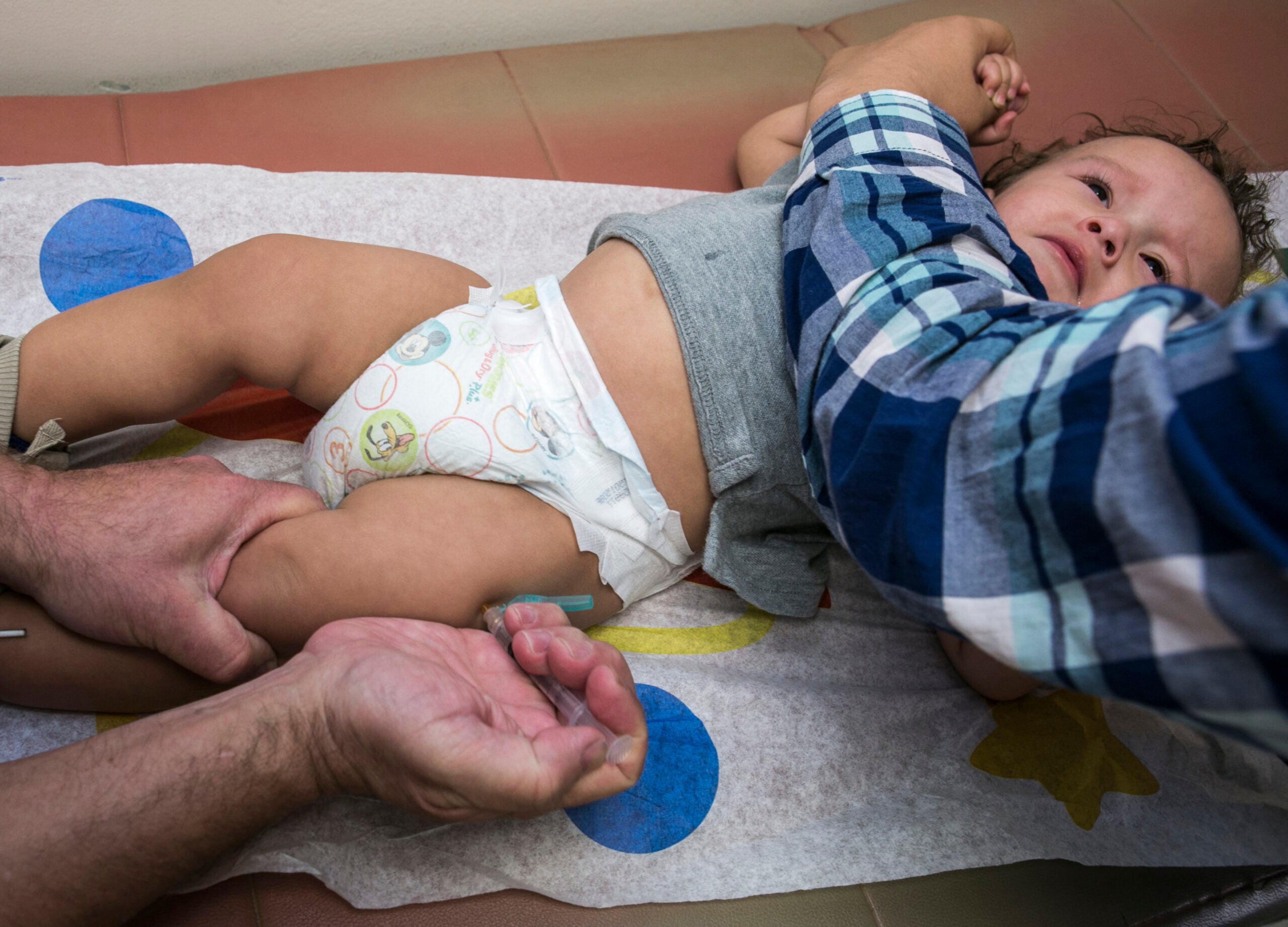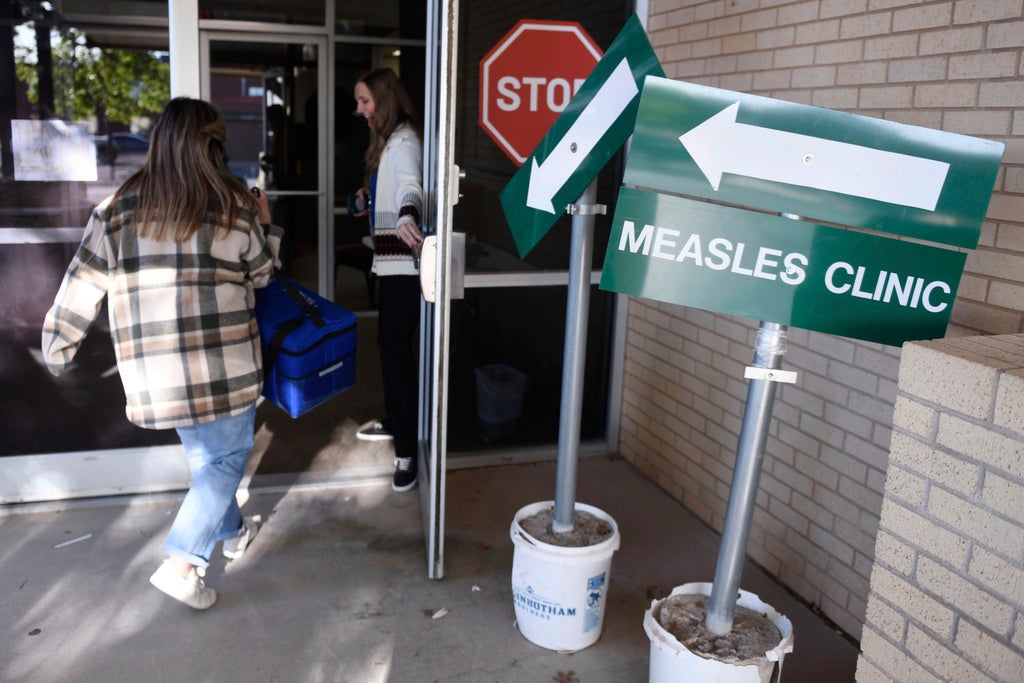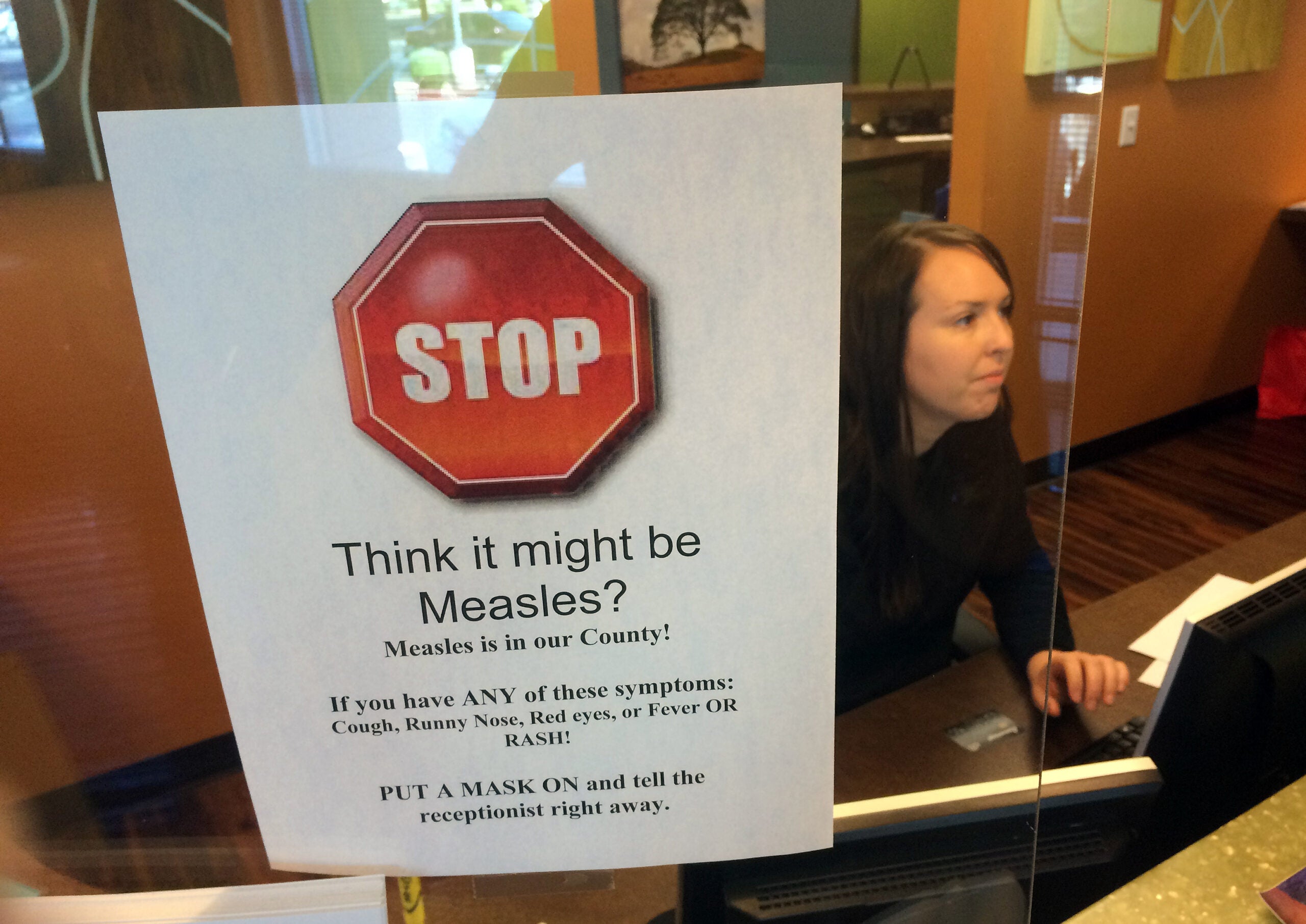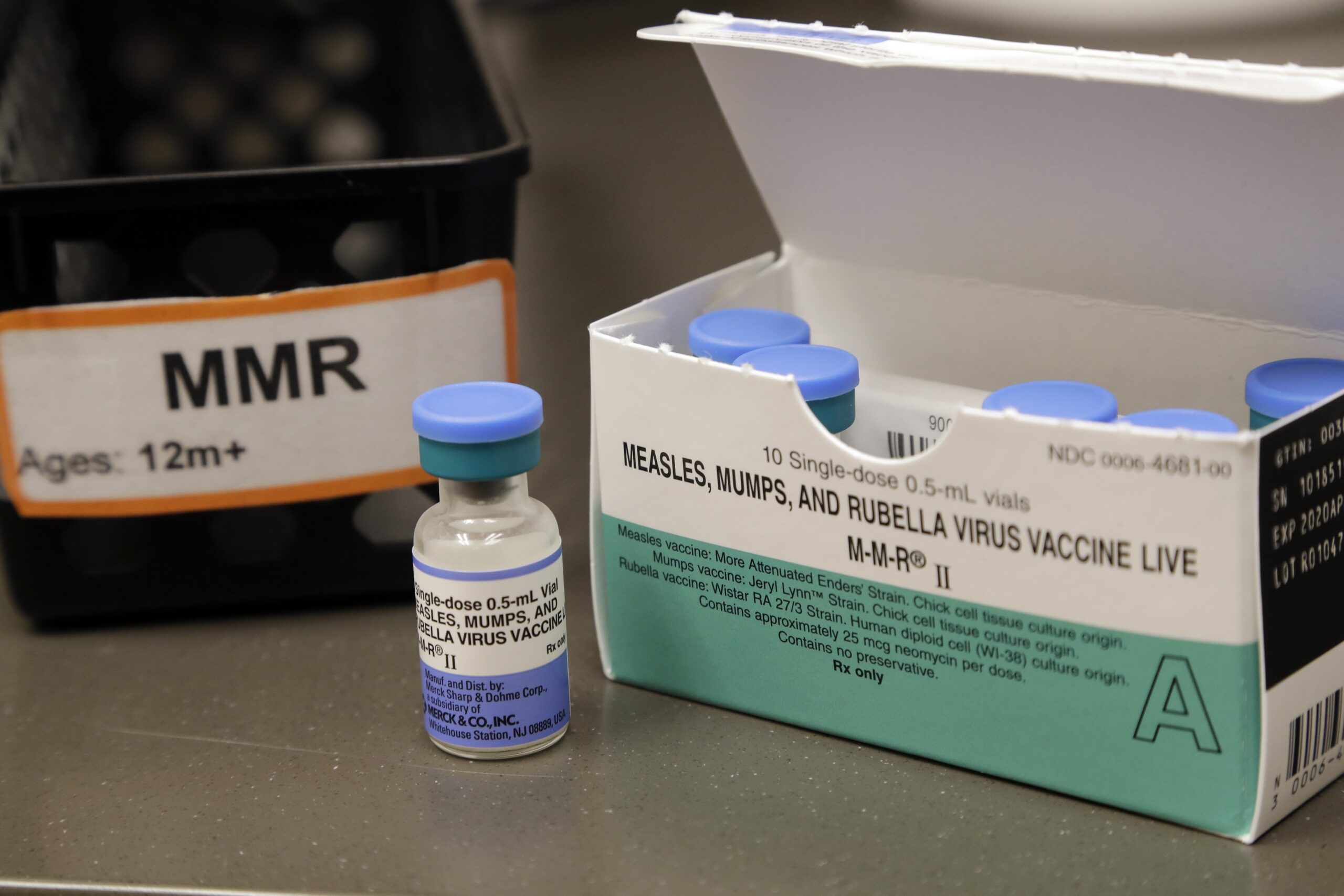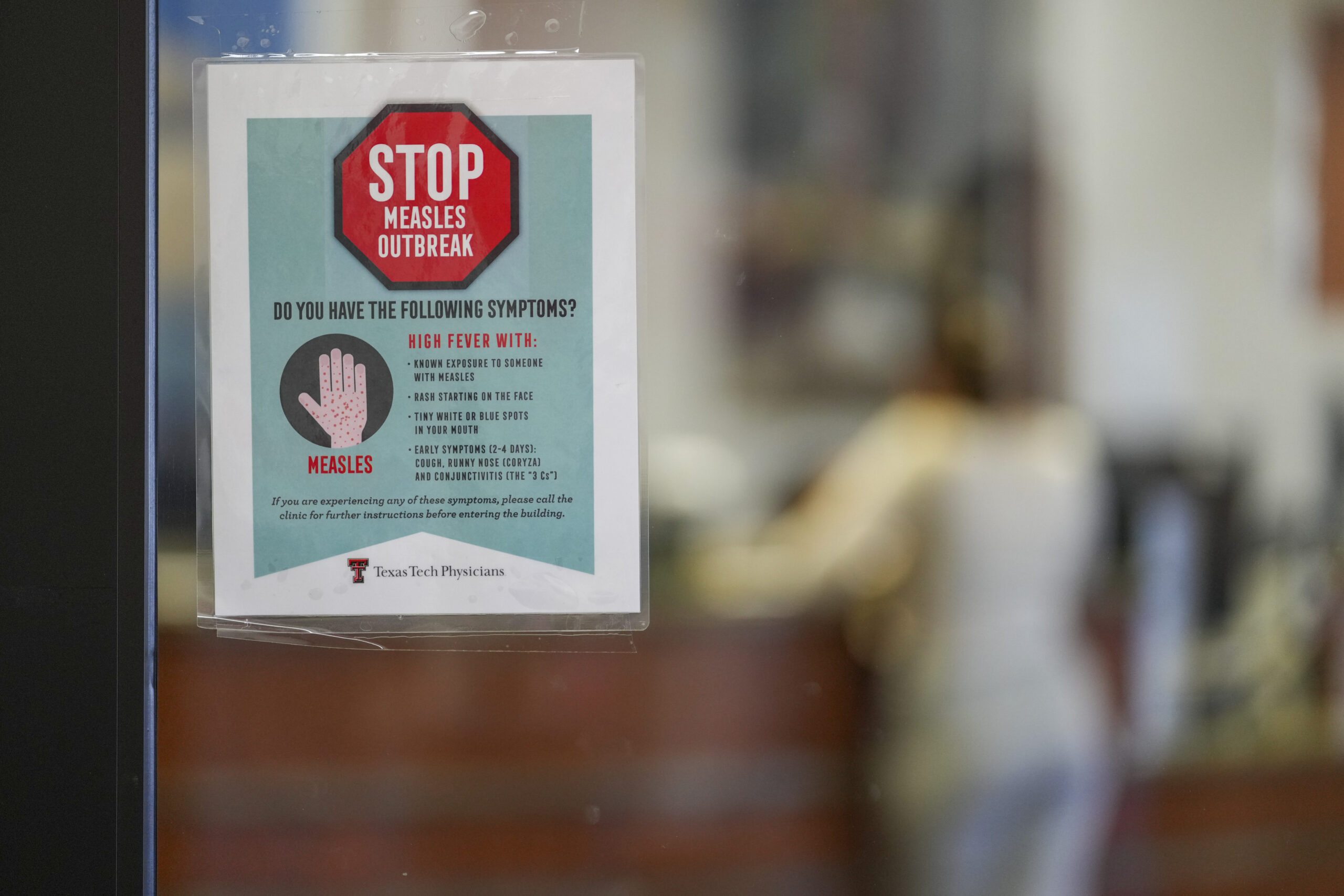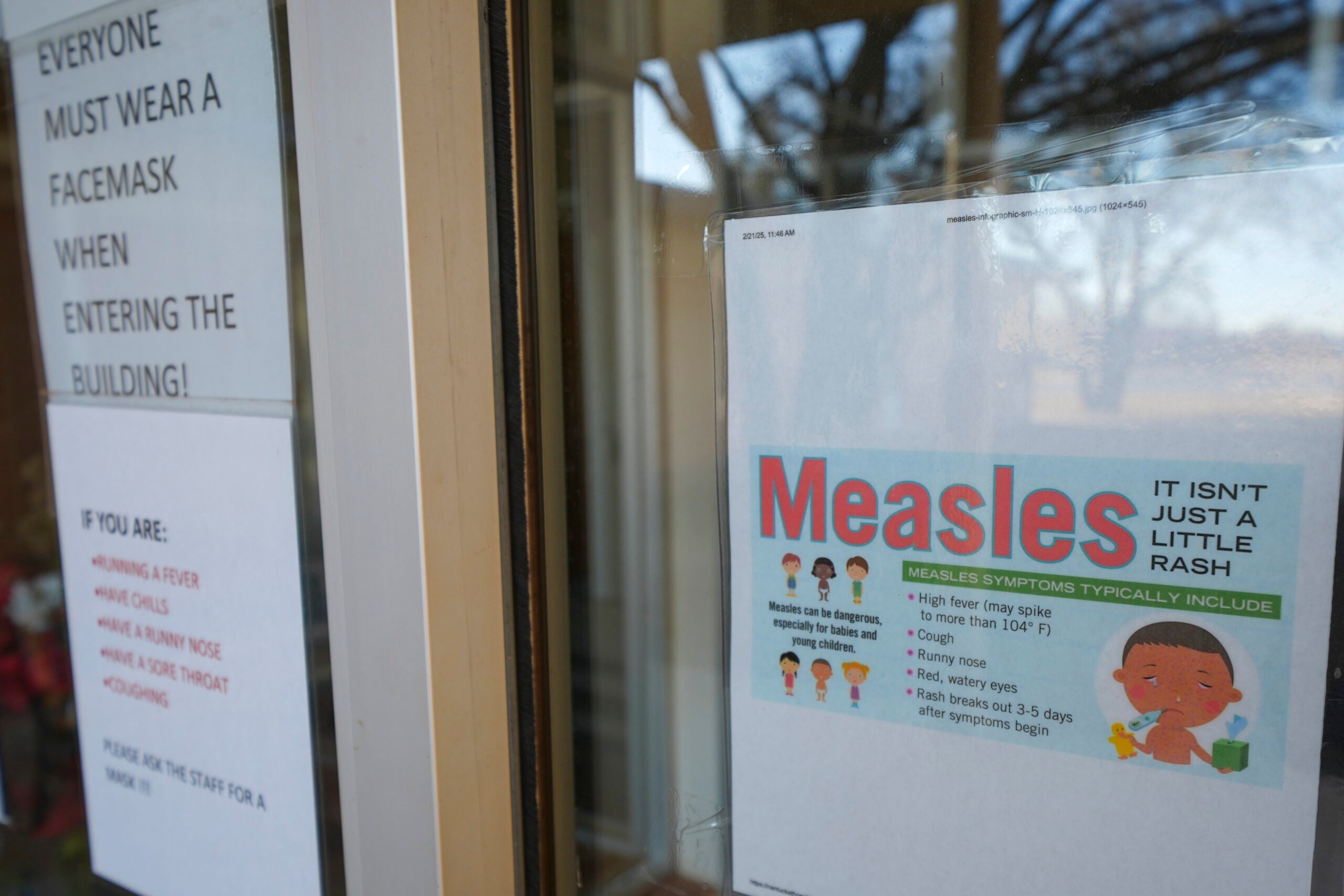The state’s top disease official says reports of public exposure to two infectious diseases in Wisconsin last week show new emphasis is needed on the importance of vaccines.
The state Department of Health Services confirmed on Friday that a Dane County resident has measles, a highly contagious and potentially deadly disease. State officials released a list of locations and times between April 21 and April 22 when people in Dane and Rock counties may have been exposed to the measles virus.
The same week, officials in Brown County reported the community was seeing a rising number of cases of whooping cough, an infectious disease that can be fatal for infants.
News with a little more humanity
WPR’s “Wisconsin Today” newsletter keeps you connected to the state you love without feeling overwhelmed. No paywall. No agenda. No corporate filter.
Dr. Ryan Westergaard, DHS’ chief medical officer and state epidemiologist, said the state does not have precise numbers for how many people were exposed to measles.
“We get to the point where something as highly contagious as measles — where just being in the same room as someone can constitute an exposure — we don’t have the ability to know,” he said.
Westergaard said anyone who was at the identified locations should make sure they know whether they’ve been vaccinated against measles. If they haven’t received the two-shot series or had measles in the past, he said they may need to receive a post-exposure medication and should monitor themselves closely for symptoms.
Measles is a respiratory virus that mainly impacts the lungs, but can also affect the central nervous system and brain. It is highly contagious, but vaccination is effective at preventing the disease.
Dr. Jim Conway, pediatric infectious disease physician at UW Health, said children and the elderly are often prioritized for getting the measles, mumps and rubella, or MMR, vaccine. But he said there is also a group of adults who are not protected from the virus.
“We didn’t start routinely giving the MMR vaccine until 1983, and only in 1989 did we realize that people actually needed a second dose,” Conway said. “There’s a fair number of people that grew up earlier than those years, but late enough that they may not have actually had measles themselves.”
Conway said people who are infected with the virus can be contagious for several days prior to showing symptoms, which can contribute to further spread.
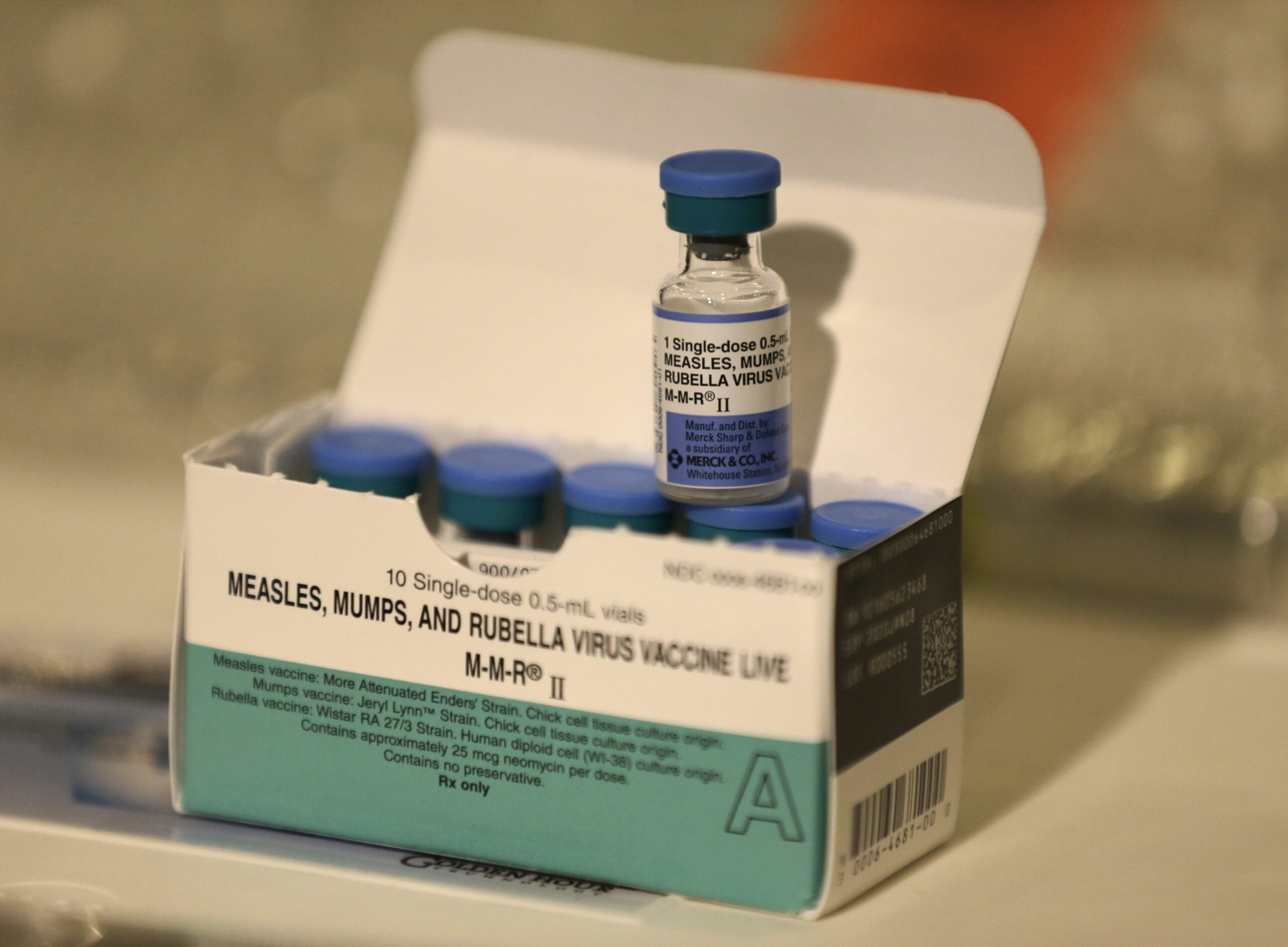
Officials hope cases will emphaszie need for vaccinations
Measles was officially eliminated from the United States in 2000. But the Centers for Disease Control and Prevention warned this month that a spike in measles outbreaks posed a “renewed threat” to eradication of the disease.
There have been at least 128 cases of measles in the U.S. in 2024, according to the CDC. By comparison, the U.S. had 58 measles cases in all of 2023 and 121 total cases in 2022.
Now that Wisconsin has a confirmed case, Westergaard said there is a chance the virus will spread. But he said state officials are optimistic public health efforts will contain it, especially after being successful in the past.
He pointed to the measles cases reported in 2021 among Afghan refugees staying at Fort McCoy during Operation Allies Welcome. Westergaard said multiple cases were identified there, but health officials were able to prevent further spread using the same type of public health response.
News of the measles case came the same week Brown County health officials warned residents about the rising number of whooping cough cases in the community. The bacterial disease, which is officially known as pertussis, is also preventable by vaccination. It can affect people at any age but is very serious and even deadly for babies under the age of 1.
Last year, according to provisional data from the Centers for Disease Control, there were 5,600 cases of whooping cough in the U.S., including 31 reported in Wisconsin. Twenty-one percent of babies under 6 months old who contracted the disease had to be hospitalized. Three babies died.
Westergaard said these instances of infectious disease are a reminder that renewed emphasis on vaccinations is needed. He said the state has seen a slight decline in vaccination rates over the last decade, which was made worse by health care disruptions during the COVID-19 pandemic.
“We really do have the tools to make these diseases occur never or almost never. And when people hear about these cases, it’s a good reminder to make sure that you’re up to date on required vaccines,” he said.
State data shows 82 percent of Wisconsin children under 2 years old had gotten at least one shot of the MMR vaccine in 2023. By comparison, 88 percent of children had at least one shot in 2013.
Conway said there are people who are hesitant about vaccines, but many families have other reasons for being behind on these shots.
“A lot of people know that they’re kind of important, but they’re not super important in their minds,” he said. “So they’re not opposed to them, they just haven’t had a chance or haven’t gone out of their way to get them.”
He said the current cases show just how easily these highly infectious diseases can make their way back into U.S. communities, especially because global travel has returned to normal after the pandemic.
While there are low mortality rates from the two diseases in the U.S., Conway said the illnesses often have severe impacts on patients, sometimes leaving them disabled or with a long recovery time.
“We need to be taking this as a very stern wake up call,” Conways said. “These things are out there — they are nasty diseases. They are largely preventable with vaccines, but we all need to make sure we’re up to date (on vaccines), as well as our family members, to make sure that we’re all equally protected.”
Wisconsin Public Radio, © Copyright 2025, Board of Regents of the University of Wisconsin System and Wisconsin Educational Communications Board.

